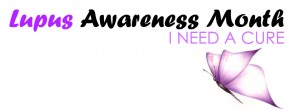 It has been estimated that more than 50% of people with arthritis have tried some kind of natural or alternative treatment for the condition.
It has been estimated that more than 50% of people with arthritis have tried some kind of natural or alternative treatment for the condition.
There are over 100 different types of arthritis including fibromyalgia, osteoarthritis, rheumatoid arthritis, lupus and gout. Each of them affects the body in different ways.
The objective of this blog is to have a look at some of the alternative treatments for arthritis and to get feedback from our readers as to how effective these natural therapies are. We can only cover some of the treatments in a blog post like this so it would be great if you use the comments box below to add any suggestions you might have for alternative therapies for arthritis. and to share your experiences of how effective they are.
So here goes:-
a) Diet as a way of treating arthritis pain. For more information please have a look at our previous blog on the subject https://patienttalk.org/?p=507
b) Similarly diet can help with inflammation. Check out our other blog on the subject here https://patienttalk.org/?p=468
c) Yoga and similar exercises such as Tai Chi. Exercise is important for people with any kind of arthritis. Low impact exercise like this helps improve both balance and muscle strength.
d) Acupuncture seems for some to be a way of dealing with the pain.
e) Supplements are available but please check with your doctor before using them as they might have an effect on the conventional medications you use. These supplements can include Chondroitin sulphate and Glucosamine sulphate.
f) Famously it has been thought that wearing a copper bracelet can help with some of the arthritic symptoms.
As we said before it would be great if you could tell us your arthritis story below. Please add any links you think may be of use to other readers. What have you tried and how did it work for you? You may wish to consider some of the following questions when you make your comments:-
1) What kind of arthritis do you have and how long have you had it?
2) What conventional treatments have you used and how effective were they?
3) Have you used natural treatments and how well did they work?
4) What was the reaction of your healthcare providers to your use of natural remedies?
Thanks very much in advance.
